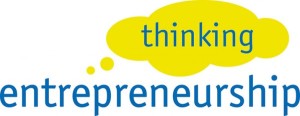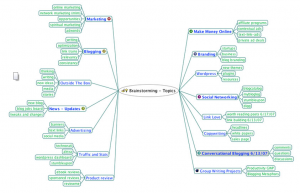[Part 7 of the Counselor Training Blog Series provides you with valuable information to help you communicate more effectively with prospective students.]
Let’s play the “what if” game. What if everyone showed up on campus for a just another normal day? Everyone, that is, but the admissions team. All of the lights are on in the admissions office. The computers are running. The doors are open. Everything appears normal but there is not a single member of the admissions team in sight. It is as if a spacecraft has descended and snatched the entire department. Where is everybody? Where did they go? No one knows.
 And, what if this goes on for days? Weeks, even. Poof! The entire admissions department has disappeared with no known date of return. Dust begins to accumulate. Cobwebs form. Tumbleweeds roll down a windy hallway. Scary little animals dart from behind empty desks. Phones ring. Non-stop. Unanswered.
And, what if this goes on for days? Weeks, even. Poof! The entire admissions department has disappeared with no known date of return. Dust begins to accumulate. Cobwebs form. Tumbleweeds roll down a windy hallway. Scary little animals dart from behind empty desks. Phones ring. Non-stop. Unanswered.
If this tale were true, what would happen to the college? We all know the answer to that question. Incoming freshmen classes would dry up. The institution would lose the vast majority of its annual revenue. It would collapse. People wouldn’t get paid. The buildings and grounds would deteriorate. The consequences would be dire. One can only imagine the full impact.
The point is that as a member of the admissions team, your role is critically important to the financial well-being of the institution. Your contribution to your college’s bottom line is supremely important. As a member of the admissions team you have a significant responsibility whether you are a counselor, an admissions support person, or the person who greets prospective students and parents at the front door in order to make a great first impression.
In many ways, your role can be compared to that of any entrepreneur in a start-up or well established company. Your responsibilities and input, like theirs, significantly influences the success and revenue of your college. Each and every day, your accomplishments, and the choices you make, have a considerable impact.
We have found that the most successful admissions teams are comprised of people who take an entrepreneurial approach to their jobs. They think and act like  entrepreneurs. Regardless of their position, or their territory, or the pool of students they are responsible for, they approach their jobs as though they are building a business. And, if you have a mother, father, brother, sister, or friend who has built a business, you know what it takes to be successful.
entrepreneurs. Regardless of their position, or their territory, or the pool of students they are responsible for, they approach their jobs as though they are building a business. And, if you have a mother, father, brother, sister, or friend who has built a business, you know what it takes to be successful.
Your job, like any entrepreneur, is to set goals and hold yourself and others accountable for meeting goals. Like any entrepreneur, you should keep your antenna up to spot trends in the marketplace and know your unique place in that market. You have to effectively manage your time – the most valuable resource you have – to make sure it’s being allocated to deliver the best possible return. You have to constantly look for “a better way” and not be afraid to apply them to your process or suggest them to the team. You have to constantly develop yourself professionally. Read. Share ideas. Embrace new ways of doing things.
These are what successful entrepreneurs do. And it applies to you. An entrepreneurial approach will make you more successful. You’ll be happier in your job and the department will function more effectively. Students will be better served. The institution will be better served.
Continue the conversation on Twitter @LongmireCo. For more information about Longmire and Company’s Interactive Counselor Training Program, click here.
[In the next installment of the Counselor Training Series, we will take a look at the specific tactics that highly-effective admission counselors employ to take an entrepreneurial approach to building their business.] Subscribe to Versions of Conversion today so you don’t miss any of this highly-valuable information.]
 Karen Full is a highly-respected higher education professional who has held positions in admissions and enrollment management at several institutions in the Midwest and Florida. With her vast experience working with large and small, public and private institutions, Karen brings a valuable perspective to her role as an Enrollment Strategist at Longmire and Company.
Karen Full is a highly-respected higher education professional who has held positions in admissions and enrollment management at several institutions in the Midwest and Florida. With her vast experience working with large and small, public and private institutions, Karen brings a valuable perspective to her role as an Enrollment Strategist at Longmire and Company.


